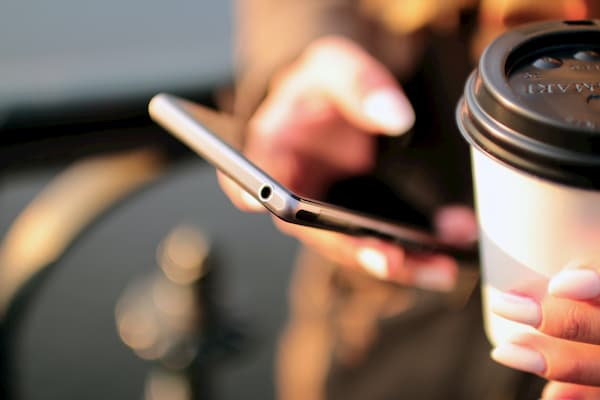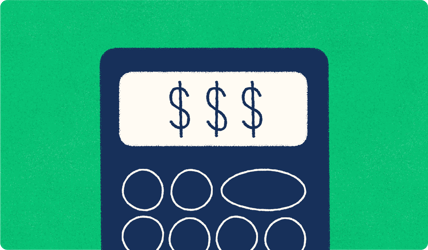
The healthcare industry is at the forefront of everyone’s mind lately, thanks to the impact of the COVID-19 pandemic. While telemedicine has become increasingly popular, there will always be a need for patients to see healthcare providers in-person.
Whether your practice is currently offering telehealth options or you’re still seeing patients face-to-face, one thing that the healthcare industry can benefit from is using an automated appointment reminder service. Let’s talk a bit about the benefits, best practices, and how you can use healthcare appointment reminders to your advantage.
Patient Communication Preferences
Did you know that 88% of all healthcare appointments are scheduled by phone? While some things warrant a phone conversation, a whopping 31% of Americans prefer text messaging whenever possible. What does that mean for your healthcare facility? Simply put, email appointment reminders and phone appointment reminders are a thing of the past. If you’re not utilizing some kind of healthcare appointment reminder system, you could be missing out.
Why You Should Be Using Appointment Reminders
According to a 2018 survey, about 42% of healthcare patients miss or skip their appointments. While health systems may not be able to do very much about the patients who skip out on their appointments on purpose, you can reduce the no show rate by investing in automated message scheduling software. When a patient misses an appointment, it’s more than just frustrating for a healthcare practice. There are many drawbacks to consider, including:
- Missed opportunity for new patients
- Decrease in patient satisfaction
- Revenue loss
Why Patients Miss Appointments
People no show to appointments for a variety of reasons. Some can’t take time off work, and some simply forget. By sending out healthcare appointment reminders, it’s less likely your patients will forget about their scheduled time.
Why You Should Utilize Appointment Reminders
There are plenty of reasons why automated appointment reminders should become a part of your healthcare practice, including:
- Most effective way to communicate.
- Gives your front office staff a break.
- Customer satisfaction will increase.
- You’ll save time, money, and resources.
What Are the Best Practices for Texting a Patient Reminder?
Once you’ve decided on an appointment reminder service, there are a few best practices to keep in mind to accomplish your goals and increase patient satisfaction and patient engagement.
Don’t Send Too Many Messages
One of the worst mistakes you can make is overdoing it with your patient appointment reminders. While sending multiple messages can be helpful, there is a fine line between staying informative and being annoying. For example, messaging your patient once or twice in the days leading up to their appointment is helpful and can reduce no shows. But, bombarding them with multiple messages may actually increase their stress levels and cause them to either cancel, no show, or go elsewhere.
A good rule of thumb is to send your patient three reminders about their upcoming appointment and space them out. While it’s important that your patients all show up, it’s even more important to keep their satisfaction in mind so they’ll return and recommend your practice to others.
Make Your Messages Clear and Concise
The point of sending a text message is to offer as much information with as few words as possible. You don’t want your patient appointment reminders to be difficult to read. Make them clear and concise. Keep in mind that 95% of text messages are read within three minutes of them being sent. Your message should be something that can be read in just a few seconds.
For best practice, your texts should include:
- Who is sending the text.
- Specifics on appointment information.
- Option and steps for cancelling.
**Do NOT include private patient information or health information in your automated reminders.**
Consider a Response Request
If you want to increase patient engagement, consider requesting a response when you send out an appointment reminder text. For example, you could ask the patient to respond with “yes” if they still plan on coming or “no” if they wish to cancel.
While you should never make a response a requirement, offering it as an option can help you to gain more insight into your doctor appointment reminder service.
Make Your Text Reminders Personal
Another good idea is to personalize your appointment reminders. Whether you’re using healthcare appointment reminder calls or texts, no one wants to feel like they are just another number. Make sure to use the patient’s name whenever you send appointment reminders. You can also include the healthcare provider they’re planning on seeing.
Avoid Common Mistakes
The biggest mistake you can make is not using appointment reminders or investing in appointment scheduling software. As stated above, you could be losing revenue for every appointment that doesn’t show up to your practice. Below are two mistakes to avoid:
Not Enough Message Reminders
If you do decide to use an appointment reminder system, don’t make the mistake of using your messages sparingly. We already talked about the best practices for how often you should send a message and how many you should send. It’s easy to fall into the trap of “worrying” that you’re annoying your patients. As long as you space your message appointments out the right way, you won’t be sending too many.
Don't Send a Message Too Early or Late
You’ll also want to avoid sending your messages at the wrong time(s). You obviously don’t want to make a call or send a text reminder in the middle of the night. But, did you know there are ideal times of day for both phone calls and messages?
Best Time to Contact Patients
Studies have shown that the best time to send a text message is in real time around 6 pm, usually when people get off work. While you don’t need to follow this exact time, you can use it as a guide. The last thing you want to do is send a patient reminder too early or late in the day. Waking someone up or disrupting them isn’t the impression you want to set with a patient.
Using Text-Em-All to Your Advantage
If the idea of sending out patient appointment reminders seems overwhelming, it certainly doesn’t have to be. Working with an appointment reminder solution like Text-Em-All can make life easier when it comes to appointment reminders. Not only can you make your appointment reminders more personal, but you can improve your patient experience and reduce no shows. In doing so, you’ll increase the likelihood that they will stick with your practice, keep their appointments, and refer others to you.
What to Expect
Using Text-Em-All minimizes the work when it comes to appointment reminders. You tell us who to contact and when, and we will send out your automated appointment reminders. Beyond that, you're in complete control of the settings of your message appointment reminder. That includes personalization fields, message responses, and more.
Why You Should Be Using Appointment Reminders
It's estimated that somewhere between five and 30 percent of patients don't show up for their appointments. But it's not for a lack of trying. Many health systems spend lots of money and resources reaching out prior to each appointment, making sure that the appointment date and time is well known in advance.
But it's not like people are magically getting more forgetful -- it's that they have more things vying for their attention, and that helpful reminder call from a few days ago probably went unanswered and the voicemail was never listened to. So what can you do when those missing appointments start to become a real problem that affects your bottom line?
The answer is appointment reminders by text message, the easiest and most efficient way to reach out to your patients without making those annoying phone calls that nobody wants anyway. Whether it's due to an inability to get time off of work or if something else pops up, a text appointment reminder is simply much more visible than that missed call in the call log.
Appointment Reminders Are Efficient
Unlike that phone call that has to be answered within 10 seconds or else it's off to voicemail purgatory, an appointment reminder is a great way to inform a patient of their upcoming appointment without taxing your resources or risking another missed call. That's good because everyone always has their phone, which is more than we can say for that appointment card that was left in a bag, thrown in a drawer or stuck on the fridge. Since some appointments can be made weeks or months in advance, that can mean the difference between making that appointment and having to schedule another.
Communicate With Your No-Shows
Life happens. Stuff comes up, work goes long and even the most well-intentioned patients miss an appointment now and then. But with text appointment reminders, your patients can stay in the know before that next appointment comes around. Furthermore, by following up after those rare missed appointments, you can easily reschedule or to reach out without jumping on the line. A quick link can provide them direct access to your scheduling, or you could always give a couple open times and let the patient decide what works for them.
A Happier Staff
Ironically, text-based appointment reminders are more likely to be heralded by your staff as they no longer need to spend their time calling and following up on appointments, including what patients should bring or prepare for on the day of their appointment. Automated text appointment reminders can do all that heavy lifting, as well as rescheduling appointments and answering simple questions that someone would need to block out an afternoon for otherwise. Better yet, your appointment reminders can all be sent automatically whenever a patient hits certain triggers, allowing your staff to focus on higher value tasks.
Improve Patient Satisfaction
It might sound like an annoyance to be sending all these text messages all the time, but patients actually prefer them -- at least compared to a phone call. Unlike a phone call, a text can be ignored until it's convenient to address, which means you'll likely get a response even if it's not immediate. That's much better than phone calls that need to be made over and over until someone responds, which may not be possible given people's work or school schedules during the times that you're open. By giving the patient the power to engage when they're ready, you're improving their satisfaction with your service by merely introducing appointment reminder texts.
Conclusion
Text-Em-All appointment scheduling software couldn’t be easier to use, and sms reminders could provide better patient care. Having healthcare appointment reminders is a necessity for medical practices nowadays. Make sure you’re going with a scheduling software service you can trust to decrease patient no shows.












